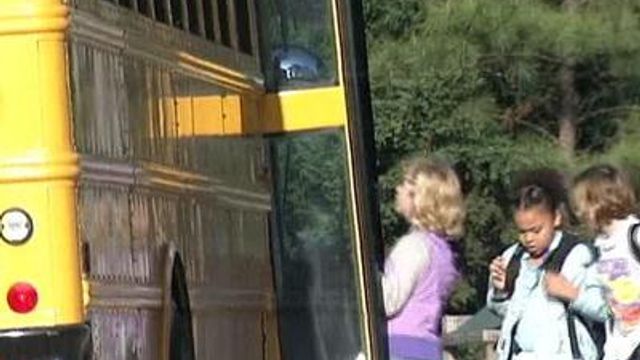Wake busing debate isn't new
The controversy about what's best for Wake County students and communities goes back nearly a decade, when the school system's socio-economic diversity policy was in its infancy.
Posted — UpdatedBut how did the school system get to this level of conflict? The issue is deeper than white versus black and rich versus poor.
The controversy about what's best for Wake County students and communities goes back nearly a decade, when the school system's socio-economic diversity policy was in its infancy. Since then, an estimated 47,000 students have been reassigned in the school system.
It was put in place after a U.S. Supreme Court ruling that school systems could no longer bus students based solely on race.
As the school system crafted and tweaked the policy to bus children based on economic factors, parents of all races complained.
Desaidra King's son, for example, was going to be bused away from a downtown neighborhood school to help diversify Leesville Elementary School in north Raleigh. She opted for a charter school closer to home.
"I don't think anyone should be demanded or commanded to go to a certain school for their child," King said.
Other parents agreed, saying that, while they believe diversity was important, the way to achieve it was through choice.
The diversity policy was on shaky ground.
In 2000, the Wake Education Partnership conducted a survey that showed that 60 percent of registered voters supported the system's diversity policy. Two years later, it dwindled to 40 percent.
Board members held firm.
"The community must answer if you want diverse schools," Bill McNeal, Wake County's school superintendent at the time, said in 2000. "What are you going to do, and what are you prepared to do to ensure that that happens in Wake County?"
The solution then, as it is now, was not easy to put a finger on.
School board members argued that they had to examine why they were busing – diversity for diversity's sake, or to benefit students.
Throughout the years, parents have complained that they have had little input in massive reassignment plans that have shuffled students across the county – some to deal with growth and to fill new schools, others to achieve diversity.
In 2003, a reassignment plan based on promoting socio-economic diversity drew a variety of criticism.
"We're talking about a process where parents don't necessarily feel like they're heard," parent Dawn Sweat said.
In the end, school leaders stuck to their vision to eliminate low-poverty schools with the hope of raising test scores and making all schools attractive to teachers.
"We've been challenged and accused of social engineering," then-school board member Bill Fletcher said in 2002. "The fact is, we've been doing educational engineering."
It's a debate that's decades old in Wake County and likely not to go away anytime soon.
• Credits
Copyright 2024 by Capitol Broadcasting Company. All rights reserved. This material may not be published, broadcast, rewritten or redistributed.






